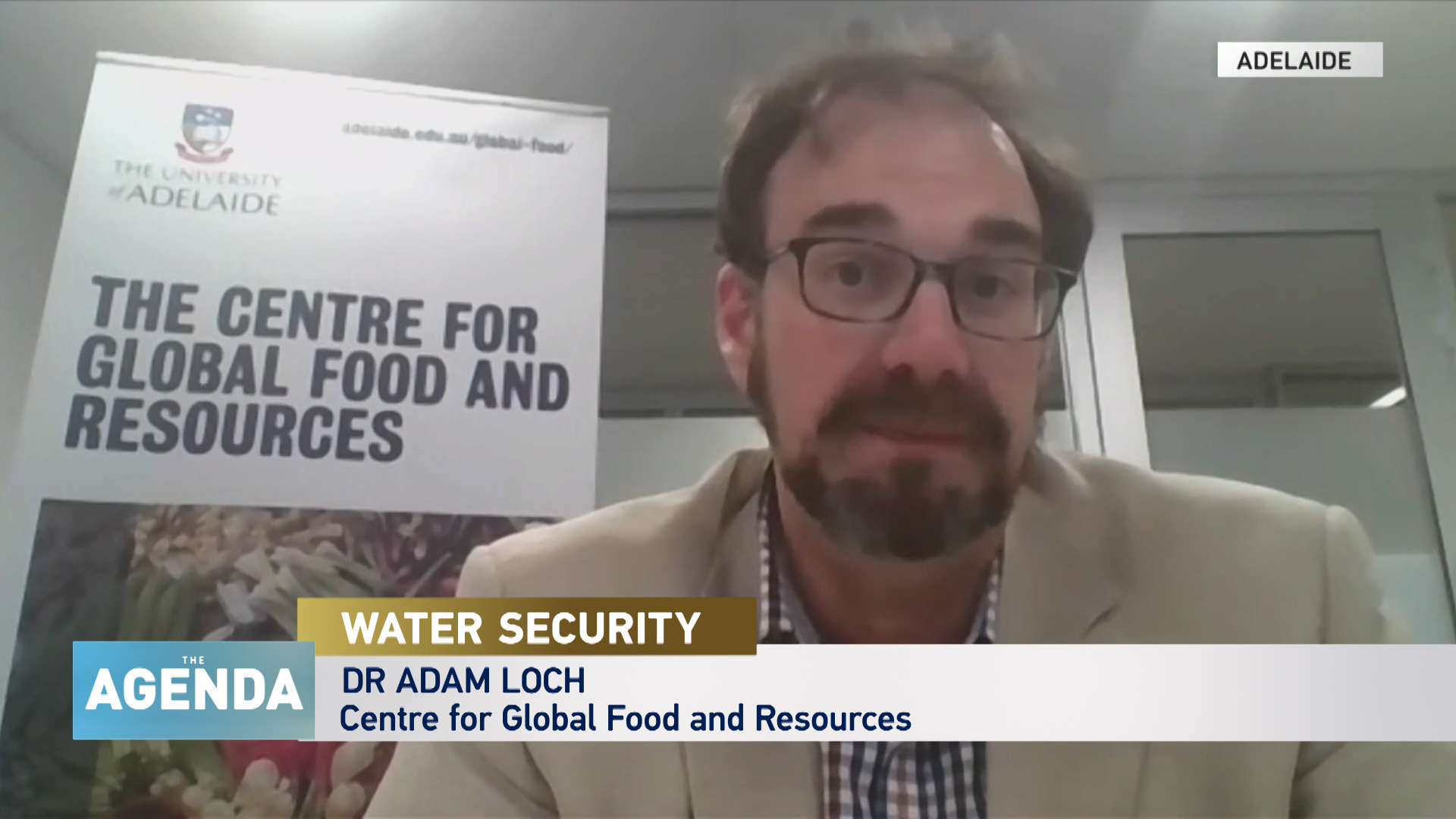05:00

A recent report suggests that at least 50 percent, and possibly up to 70 percent of the world's clean water is stolen every year.
In October, the University of Adelaide revealed the details of a study that claimed water was mainly stolen by farmers or other people with agricultural interests.
One of the lead authors of the report, Adam Loch, told The Agenda's Stephen Cole: "Agriculture represents 70 to 80 percent of water use globally. And so, if that's being stolen, it really is a big problem."

"You can be taking groundwater ... through a pump, which doesn't belong to you. That groundwater has been provided as a right for someone to use on their farm in their industry or whatever that may be, water their cattle etc...
"You could be opening a gate on a canal, turning on a pump in a river system, whatever it might be, when you're not supposed to and it's not your water. It's the same as taking a car or a cow or anything else really."
Loch says that, although most people aren't aware of the existence of the crime, it is likely to be having a big impact on several areas of society.
"[If farmers] are not getting their supply as expected, that will impact on their production, impact on their livestock and their drinking supply. It also has a bigger impact on the people who manage water on our behalf.
We've got to get on top of this problem if we want to ensure it doesn't become a major issue
- Adam Loch, from the University of Adelaide, fears water theft could become a big global problem
"If that water is coming out of a large storage or even out of a river, then they're being impacted. If 70/80 percent of water is from agriculture then that's going to put pressure on other users because that water has to be found from elsewhere to make up for those losses. So really it can impact all of us."
According to the report, theft of water often occurs in arid areas where it is more sparse and Loch says it's vital that something is done to prevent it, with climate change set to have an increasingly negative impact on the availability of water across the world.
He said: "Arid areas are more likely to experience this phenomenon but the whole world is becoming more arid globally, water is becoming more scarce. We've got to get on top of this problem if we want to ensure it doesn't become a major issue for us moving forward."

